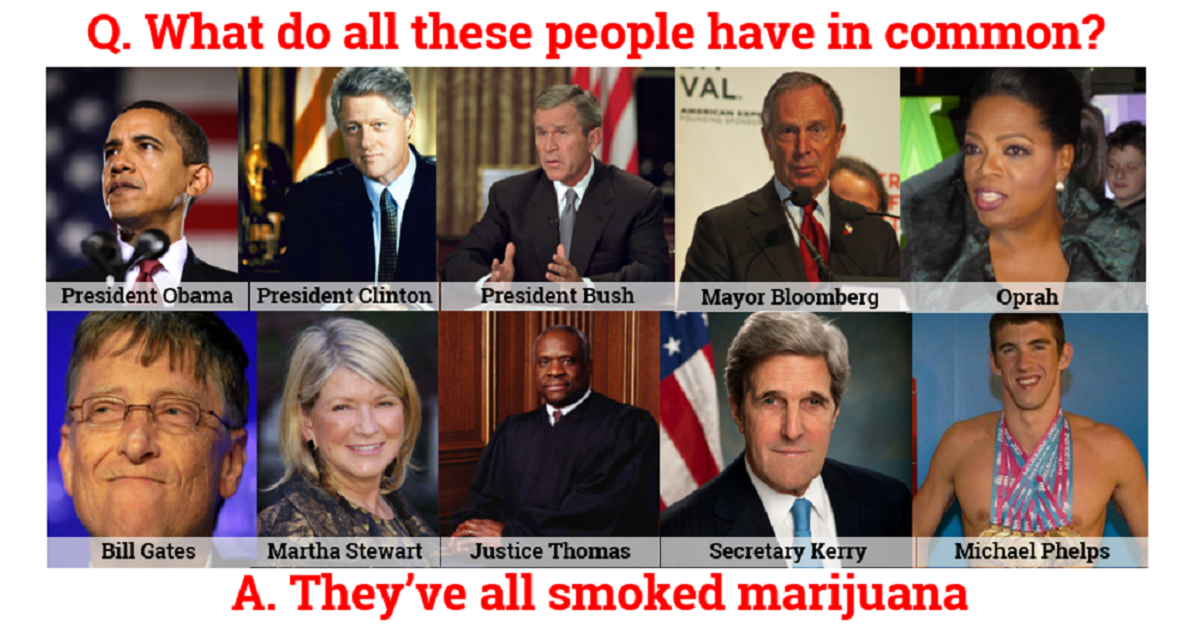Your Employer Probably Doesn't Care If Weed Is Legal
By:
On Nov. 4 the city of Washington, D.C. voted to legalize marijuana. It didn’t legalize it for sale, but for possession of up to two ounces and owning up to six plants for personal cultivation.
On Nov. 5 I left the house to take a trip to the hairdresser. In front of the salon two gentlemen were busy rolling a joint. I could smell it long before I got near them and immediately told the salon owner as soon as I got inside. When she confronted them they responded, “It’s legal!” and “I’m not selling it!”
But technically it was still illegal and my hairdresser was still annoyed. Sure, D.C. voters may have had their voice heard, she (and even myself) found it unseemly that someone would smoke on the street in broad daylight. A lit cigarette? Sure. But smoking marijuana openly in public? It was tough for us to wrap our head around.
And that’s marijuana’s newest challenge. It may be legal by law, but it’s not normalized.
Everyone’s ready to go when it comes to new laws legalizing marijuana, everyone except the long-standing segments of our society that have long viewed marijuana as a dangerous narcotic. Like Congress – where Rep. Andy Harris (R-Md.) vows to try to stop D.C.’s legalization law despite it receiving an overwhelming majority vote in the district, or the work place where many jobs still screen applicants for marijuana use prior to potentially hiring them.
The New York Times recently reported:
That marijuana’s recent strides toward the legal and cultural mainstream are running aground at the office. Even as 23 states allow medical or recreational marijuana, employment experts say that most businesses are keeping their drug-free policies. The result is a clash between a culture that increasingly accepts marijuana and companies that will fire employees who use it.
Even in Colorado and Washington, the country’s most marijuana-friendly states, a glance at online classified ads lays out an unwelcome landscape for marijuana smokers. “Please do not apply if you are NOT drug free or carry a medical marijuana card,” warns one job listing for a mechanic in Denver. A Chevrolet dealership in the suburb of Aurora tells applicants, “We do screen for medical or recreational marijuana.” In Seattle, a recycling company looking for a welder cautions that they are a “zero-tolerance company including marijuana!!”
What sense does it make to still screen for pot if it’s legal? It makes sense to those who still haven’t changed their minds about the potential dangers of a substance falsely demonized as more dangerous than alcohol. Alcohol's acceptability has always come with the irony that it's much worse than pot, destroying both livers and lives and is a factor in 31 percent of all car accident deaths. But alcohol has had more than 80 years to get over its once illegal sheen. With marijuana we have a now legal substance with a still very illegal stigma.
College students are still running into trouble on campus in states with legal marijuana. And those who were prosecuted for crimes related to marijuana possession still must deal with the repercussions of having a record or spending time in prison. Society still views those incriminated for marijuana as criminals, even if want they did is now legal.
Legalization, in the long run, should lead to a much lower incarceration rate in the United States. It should lead to people no longer being penalized for something 38 percent of Americans have tried. But we’re still some ways off from weed being something you can smoke on the street without getting some cross looks, let alone something acceptable to employees to do in their downtime – even if it is for medical use. The next move in the legalization fight will be striving for normalization. We can’t assume society will fall in line just because of what the law says. Turning marijuana from menace to minor recreational nuisance will take just as much work.
If you want to help reduce the stigma of pot, share this image:

